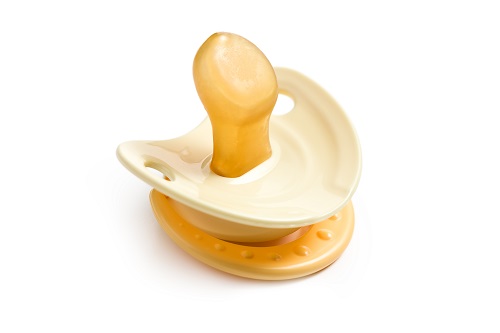Texas Officials Warn Against Honey Pacifiers and Infant Botulism
November 30, 2018
According to the Department of Health Services in the state of Texas, parents of infant children as well as other adults were warned about giving certain pacifiers to babies, specifically those containing honey. This warning came as a result of four babies in that state becoming sick with botulism and then being treated for it soon after. Health officials are saying the four children who were ill each had been using honey-filled pacifiers that were recently bought in Mexico. The departmental warning was issued in the last few weeks, with the four cases in question having occurred between mid-August and the tail-end of October.
The babies each received the same lifesaving treatment, but, interestingly, none of them were related, coming from different families and different areas throughout the state. Botulism, the disease these children were struck with, is a serious condition that’s the result of toxins that specifically attack the nerves in your body. These toxins cause breathing troubles, paralysis, and—the worst-case scenario, especially when untreated—death.
Regarding honey, when it is improperly filtered or handled during packaging, this leaves it vulnerable to bacteria that can produce botulism toxins in an infant’s intestines whenever they consume honey. Because of their increased risk for botulism, the Centers for Disease Control and Prevention (CDC) as well as the American Academy of Pediatrics both stipulate that children younger than one year of age should not eat honey. After that, they should have developed enough bacteria of other kinds in their digestive system to prevent botulism-producing bacteria from cultivating and producing their toxins.
Per the Texas DSHS, honey-containing pacifiers aren’t regularly sold within the U.S., but they could be available through online retailers and a few specialty stores. While many of these products don’t call for the honey inside to be eaten, some reportedly have small holes that allow the children to consume the honey. It’s also possible for the pacifiers to accidentally leak or rupture, thereby allowing infants access to the potentially dangerous substance.
With these recent botulism cases in mind, parents would do well to avoid pacifiers with other food substances inside or as a part of them, as they too could pose a botulism risk to young children. Admittedly, botulism cases are rare, with about 205 being reported in U.S. in 2016, but, of those cases, per the CDC, 150 were babies who were less than 10 months of age
Photo By jirkaejc


.jpg)



